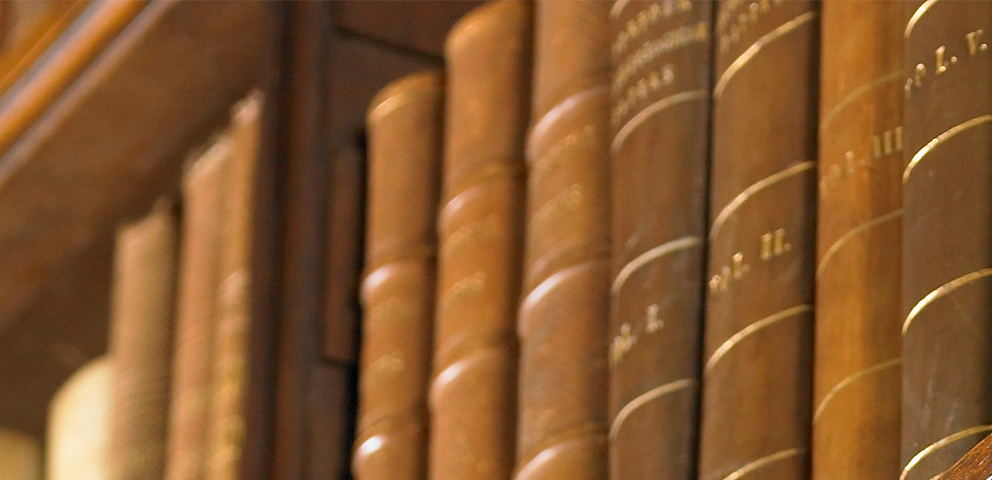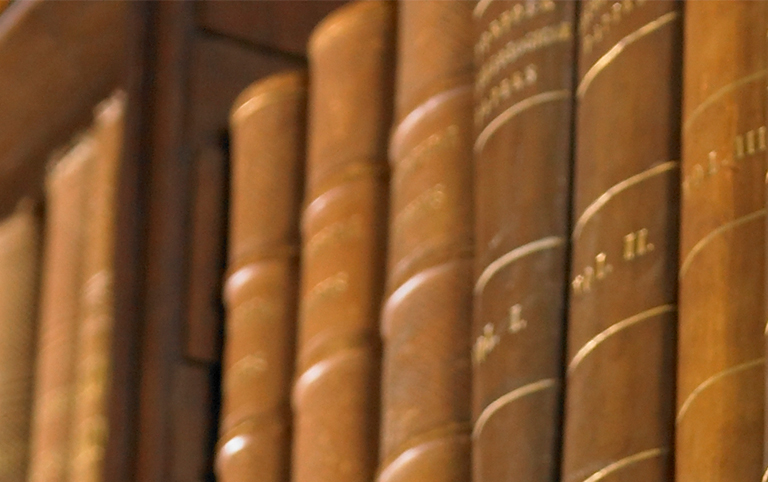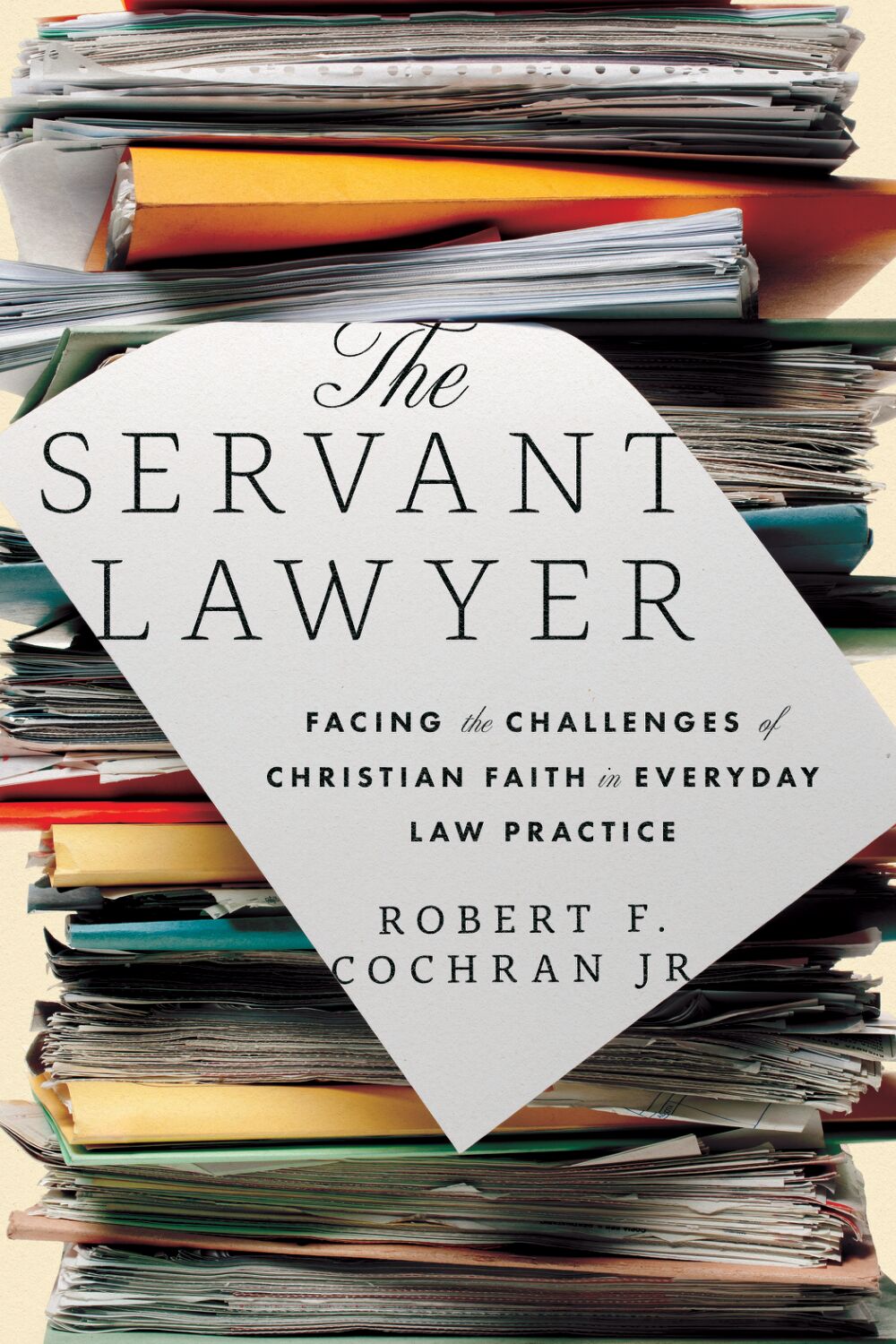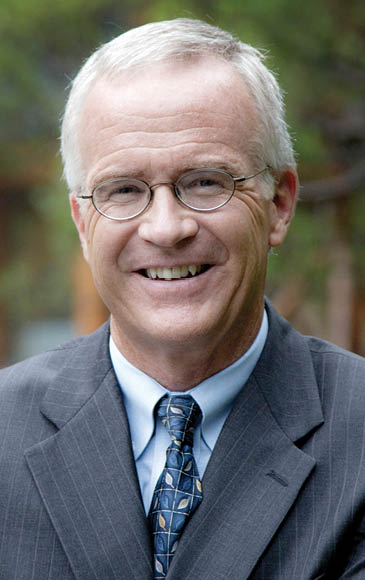A Conversation on the Lawyer's Vocation with Robert F. Cochran
Is the lawyer's vocation considered a "servant" profession? Robert F. Cochran, author of The Servant Lawyer, believes that lawyers can serve both humans and God with their work. Read this interview to hear how Cochran views the calling to the ordinary practice of law as experienced by ordinary lawyers.
When someone mentions "the helping professions," we don't usually think they mean lawyers. But in what ways are lawyers in fact uniquely positioned this way?
Robert Cochran: The common image of the lawyer is the trial lawyer ranting and raving at a witness. There is a place for a lawyer's aggressive advocacy, but lawyers spend a lot more time caring for hurting clients than attacking witnesses. People often go to a lawyer when they are facing the most difficult challenges of their lives—their marriage is breaking up, they are facing a prison sentence, they have been permanently injured, their children are in trouble, or their business has failed.
The lawyer metaphor that I suggest in this book is the lawyer as friend. The lawyer, like a friend, is on the client's side, but brings a level of objectivity to the relationship. Lawyers serve clients by loving them, by speaking for them, and by standing with them during the most stressful times in their lives. Lawyers also serve clients at times by standing up to them—by calling them to be their best selves.
What do you wish most that the general public knew about lawyers' work? And what do you wish most lawyers themselves knew better?
RC: Many Americans, including Christians, have a somewhat anti-law attitude. Of course, law can be a force for evil and Christians are saved by grace, not law, but when law is in its proper place, it is a structure of love and a gift from God. It encourages human flourishing. Generally I think the American judicial system yields pretty good results. Go to a country where there is no rule of law, and you will greatly appreciate our legal system.
I also wish the public appreciated the role lawyers play in the legal system. Justice is complex and often difficult to discern. Within our system, judges and juries seek truth and justice with the help of lawyers for each side attempting to make the best case for their clients. Lawyers help judges and juries exercise wisdom.
As for lawyers, I wish they had a better sense of how their work fits in God's world. Many lawyers just go through the routine of law practice each day. They do not see their work as a vocation, as a service to God and humans. They fail to think Christianly about their work. Such a view would give lawyers a greater sense of meaning in their work. It would also help them discern when they should resist what might be the standard responses of lawyers to situations. At times, lawyers should swim against the tide.
In what ways is the calling of a lawyer like any other vocation, and in what ways is it different?
RC: God calls all of us to be servants, to meet people's needs. But in addition to the particular focus on justice of course, one important distinction is that lawyers have more power than people in most lines of work. That power creates special temptations and lawyers can use it for good or evil. Lawyers' decisions about whom to represent, whether to bring suit, and how to handle a case are likely to affect not only the parties but a lot of other people as well.
Your book is saturated with a lively sense of energy and I'd say even lightheartedness. How do you keep a smile on your face in a line of work that plunges you amid disagreements and conflict, even crime and violence?
RC: You are right that lawyers often encounter tragic situations. Much of a lawyer's work arises because of the fallen nature of humanity. The temptation is to distance oneself emotionally from such situations and such people. There is a danger that lawyers will become cynical. I guess I remain hopeful, maybe lighthearted, because I have confidence in a sovereign God. He will bring good out of the worst situations, even if we never see it. I also try to look at things from an eternal perspective. From that view, even the worst things we (and our clients) encounter will seem smaller. In the New Heavens and Earth, God will "wipe away every tear."
This interview originally appeared in the IVP Academic catalog. Sign up to receive the catalog to be the first to discover new academic books and author interviews.







